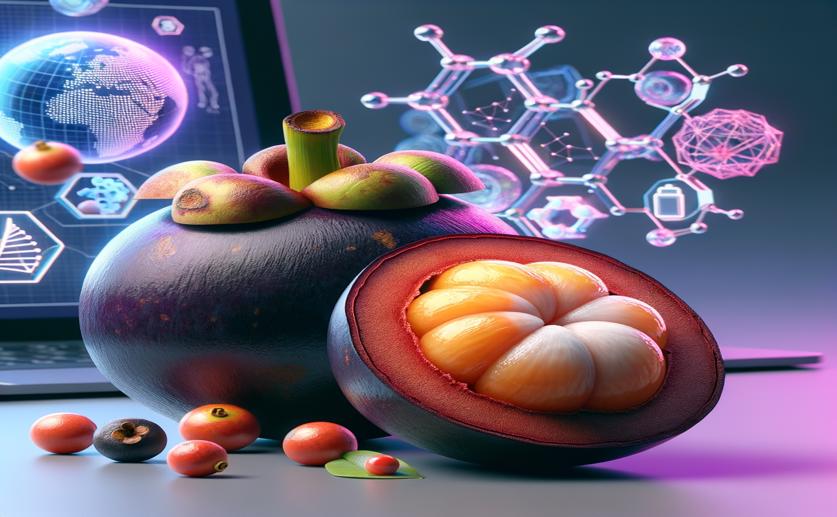
Exploring the Acne-Fighting Power of Mangosteen Compounds
Jenn Hoskins
31st March, 2024

Image Source: Natural Science News, 2024
Key Findings
- Researchers at the University of Strathclyde found mangosteen fruit compounds may help treat acne
- Compounds like garcinoxanthone T showed potential in binding to proteins linked to acne development
- These compounds also displayed good drug-like properties, suggesting they could effectively reach target areas in the body
References
Main Study
1) In silico studies on the anti-acne potential of Garcinia mangostana xanthones and benzophenones.
Published 1st April, 2024 (future Journal edition)
https://doi.org/10.1515/znc-2023-0118
Related Studies
2) Reviewing the global burden of acne: how could we improve care to reduce the burden?
3) From pathogenesis of acne vulgaris to anti-acne agents.
4) Cutibacterium acnes (Propionibacterium acnes) and acne vulgaris: a brief look at the latest updates.



 5th February, 2024 | Jenn Hoskins
5th February, 2024 | Jenn Hoskins